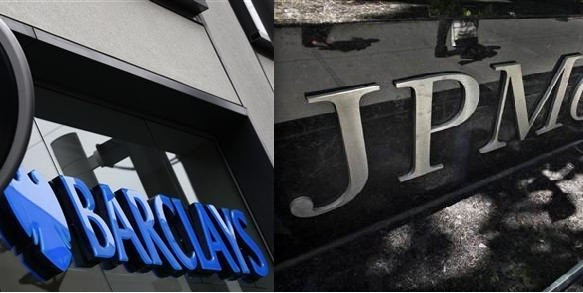Manipulating the Power Markets: New Banking Scandal to Unfold?

Barclays became the latest bank to be investigated by US authorities over its power trading activities after it announced a probe in its latest set of financial results.
While the bank revealed that US' Federal Energy Regulatory Commission (FERC) Office of Enforcement (FERC Staff) has been investigating Barclays' power trading in the western US between 2006 and 2008, it is actually the second bank this year to be under the spotlight for electricity markets related disputes.
Although, Barclays said it intends to "vigorously defend" allegations from FERC, after the regulator notified Barclays that it has authorised the issuance of a public Order to Show Cause and Notice of Proposed Penalties against Barclays in relation to this matter on 25 October, JP Morgan is facing some very similar charges from FERC.
In September this year, FERC said that J.P. Morgan Ventures Energy Corp had misled regulators and that its authority to sell electricity might be suspended.
On 20 September FERC issued an order to the group to demonstrate how it didn't violate FERC regulations and why its permit to sell electric energy and related services at market-based rates should not be temporarily revoked.
"[The] order preliminarily finds JP Morgan may have omitted material information or submitted misleading information in communications with the Commission, CAISO and the DMM. It says four statements by the company, including statements made in a non-public appeal of a CAISO penalty for JP Morgan's failing to comply with a data request in a timely manner, and a related complaint, subsequently withdrawn by JP Morgan, may have violated FERC regulations under the Federal Power Act," said the statement.
The latest instalment in the power saga follows JP Morgan's refusal to turn over e-mails that FERC requested in its power probe.
According to court filings, FERC sued JP Morgan on 2 July to release 25 emails after complaints from California and Midwest grid operators that JPMorgan's bidding practices were abusive.
JP Morgan spokespeople were not immediately available to comment when contacted by IBTimes UK.
More Fines for More Banks?
While the manipulation of the power markets may seem like a far removed problem for consumers, the impact of an institution being found to have violated regulations could lead to a number of issues.
When many US states deregulated the power markets in the late 1990's, it led to a number of Wall Street firms trading electricity. Buyers bid for electricity from power generators and then consumers - or end-users- would then purchase it from their local utility.
Power companies can sell wholesale energy at market-based rates, or cost-based rates, which are usually lower.
"The integrity of FERC's ability to ensure that market-based transactions produce just and reasonable rates relies on the honesty of market participants' communications with the Commission and other jurisdictional entities, the order says. In granting market-based rate authority, FERC expects that a company's behaviour will not involve fraud, deception or misrepresentation," said the regulator.
If the regulator finds wrong-doing at any institution, it could lead to a fundamental change to how the power markets are supervised and conducted.
Another issue is the civil penalty side of problem, as a raft of fines will impact on the bank's health if enough fines amount to impinging on its profitability and capital reserves.
As demonstrated by Barclays' latest set of financial results, it already took a tumble in profits after stumping up £700m in Payment Protection Insurance (PPI) charges, bringing its PPI compensation up to £2bn.
It also was fined £290m for rigging Libor by the Commodity Futures Trading Commission, Department of Justice and the Financial Services Authority. However, the bank could face further fines, should a number of other regulators follow suit.
On top of this, the mis-selling derivatives scandal is unfolding in the UK.
While the total compensation estimate for Barclays and the rest of the industry on mis-selling interest rate swap agreements (IRSA) to small to medium enterprises has not yet been calculated, some 40,000 products sold are being investigated for potential mis-selling.
The first public 'test case' in the UK was confirmed this week, after a High Court judge ruled that Barclays would have to face Guardian Care Homes in court over its damages claim of £38m on two IRSAs.
Earlier this year, IBTimes UK reported that the FSA did not recognise the size or importance of banks mis-selling derivatives to businesses as early as 2011 and has privately expressed concerns that stringent restrictions on banks selling certain products to customers or ratified compensation plans and amounts will threaten the solvency of the UK's largest banks.
Experts have since told IBTimes UK that due to the lack of a set criteria for 'fair redress' or compensation, under an FSA agreement with the banks, the amount banks will have to pay out to customers claiming to be mis-sold derivatives could exceed the industry's estimated £10bn worth of payments from PPI.
Barclays revealed in its statement that it "has been informed by the US Department of Justice and US Securities and Exchange Commission that they are undertaking an investigation into whether the Group's relationships with third parties who assist Barclays to win or retain business are compliant with the United States Foreign Corrupt Practices Act."
The bank said it was fully co-operating with both.
© Copyright IBTimes 2025. All rights reserved.






















